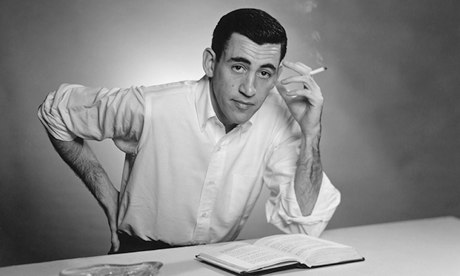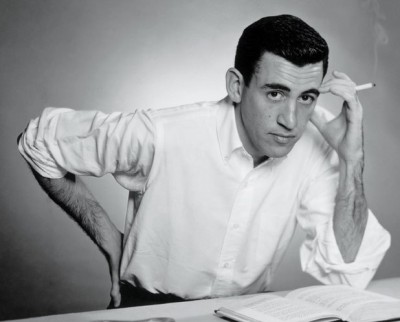
Three short stories written by the late J. D. Salinger found their way online following an eBay auction of a bootlet book titled “Three Stories.”
The stories are “Paula,” “Birthday Boy,” and “The Ocean Full of Bowling Balls.”

At the Reddit website, there is an intense discussion about the situation. This is apparently what the person who leaked the stories had to say:
It took me many weeks of research to find that this book existed and many more weeks to acquire it. I will confirm and take with that take responsibility to the claim that these are accurate to the originals.
Not much is verifiable to the origins of this book I have here. At least I will not confirm anything. What I do know is that someone with access to the originals compiled them together in this self-published collection. There is a single UPC symbol on the back that leads no where. Other than that, it’s existence is not well documented.
Enjoy.
Also posted at the site:
The book “Three Stories” seems to be a copy of a collection originally released in 1999. An eBay who sold a first edition of this collection said the following:
Ebay Seller seymourstainglass wrote:
Paperback. 47 pages. On Copyright page it says printed in London in 1999. Copy number 6 of 25.
3 short stories written by JD Salinger never published at all and that remain in The Ransom Center of the University of Texas at Austin Untitled or “Paula” (1941)The untitled manuscript at the Ransom Center is less a story than a series of scenes not yet sewn together. Whether or not this is some form of Salinger’s lost story “Paula” is pure speculation. However, in a letter dated October 31 (1941), Salinger states that he is “finishing a horror story (my first and last) called ‘Mrs. Hincher.’ ” Undoubtedly a reference to the story described here, Salinger’s letter dates its completion to late 1941 or early 1942.
“The Ocean Full of Bowling Balls” is largely regarded as the finest of Salinger’s unpublished works. While not having had the opportunity to revue all of the author’s unpublished materials, it is hard to imagine a more important work among them
“Birthday Boy” (1946?)The short story “Birthday Boy” is accompanied by a letter from Salinger to John Woodburn which refers to “both sets of proofs”. Although undated, the letter probably dates to 1951, the year that Woodburn published The Catcher in the Rye. However, it’s also likely that the letter does not reference Catcher, but a short story sent to placate the editor instead. Salinger’s relationship with Woodburn was brief and somewhat bizarre.
Images of the First edition http://i.imgur.com/98bfQ8K.jpg
Printing/Copyright details http://i.imgur.com/T7nymsT.jpg
For more, head to The Guardian or the New York Times.
If you want access to the stories, you might fish around here.
